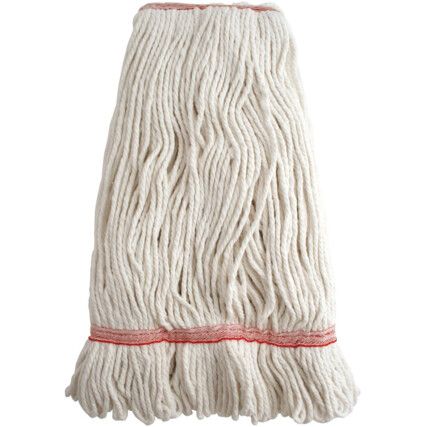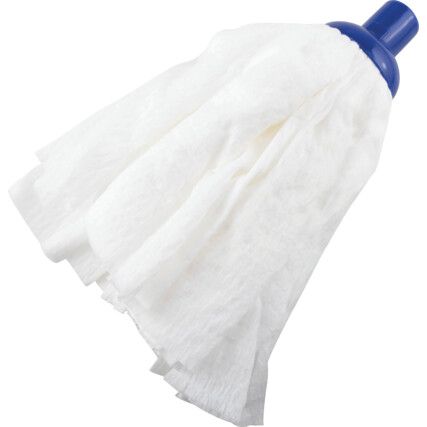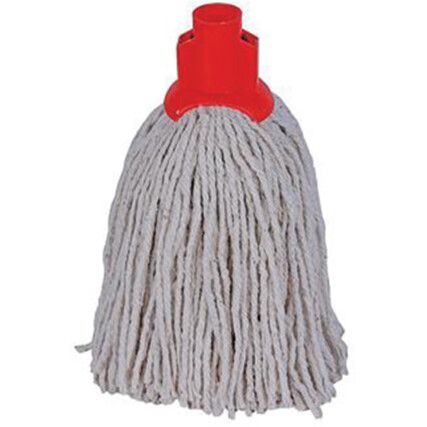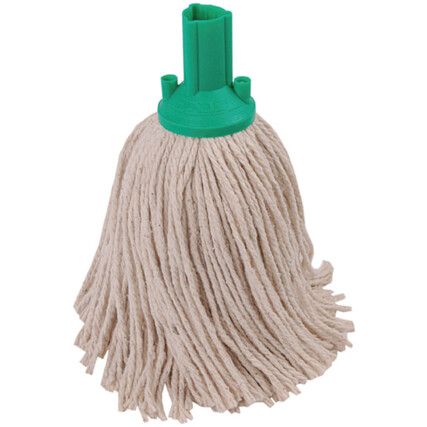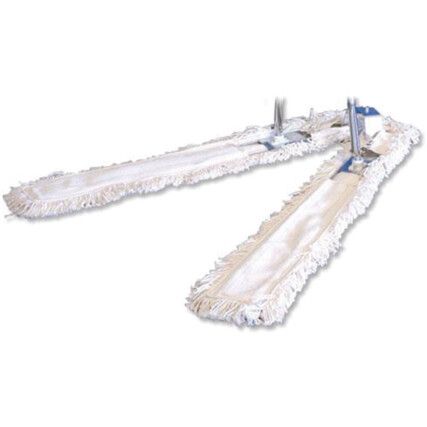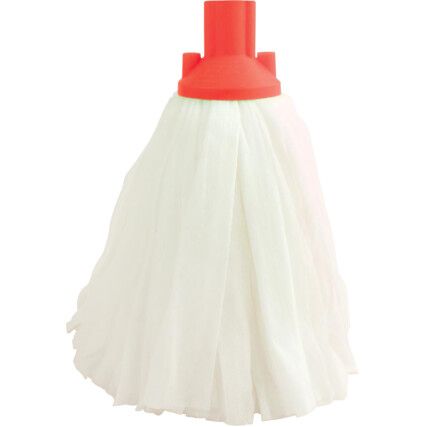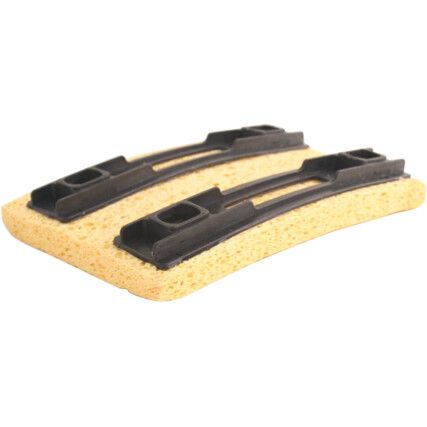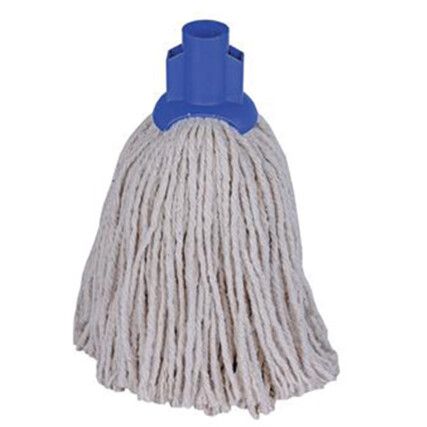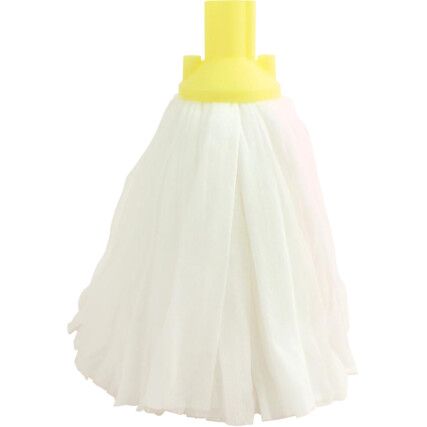Mop Heads
Keep hygiene and maintenance up to scratch with replacement mop heads from Cromwell. We stock high-quality mop heads in a variety of materials, like yarn and microfibre to suit all floor types and sizes. Colour-coded fittings prevent cross-contamination to keep your working environment at its best.
Choose from our range of replacement mop heads from well-known brands, like Bentley Brushware®, Rubbermaid®, Robert Scott® and our own brand, Cotswold®.
What are mop heads?
Mop heads are the main cleaning component of a mop. After a certain amount of cleaning, mops can start to fall apart and need to be replaced. Instead of replacing the entire mop, including the handle, replacement mop heads can screw or push into place, while other types are designed to slip over metal frames like scissor mop sleeves.
Why mop heads?
Mop heads are ideal as replacements to your current mop, ensuring that the best cleaning results are achieved even with regular use.
When to use mop heads?
When cleaning hard floors such as tile, lino, wood or marble, mops are best used to effectively remove dirt and debris without damaging the surface.
Mop head types
Mop heads come in a variety of types and designs, with some designed for normal wet mopping, while others are for dry mopping only.
• Cut-end mop heads - The most common style of mop head, this economic style is often used as a disposable option as they fall apart when laundered. They're a highly absorbent option for a small surface area
• Looped end mop heads - These mop heads are used specifically for large areas. The looped design delivers durability and longevity
• Microfibre mop heads - These resemble cut strips of material and act to lift and collect dirt from the floor's surface. They're extremely absorbent making them the ideal choice for cleaning up spillages and can be machine washed without damage
• Cotton mop heads - This mop head is designed for dry use to collect dust and other dry soiling from dry floors. These often come in scissor mop covers or in long, thin designs to help them cover large areas of flooring
• Microfibre pad mop heads - This split fibre material allows for high-performance dry mopping on large surface areas. Usually laundered between uses, they're an eco-friendly option
Considerations when choosing mop heads
• Application - choose a mop head that's compatible with the type of cleaning you'll be doing. A dry cotton mop will be of no use when wet mopping a large hall.
• Style - when mopping up spillages and smaller floors, a cut-end mop is ideal, but a looped end mop is the best choice for general cleaning of large surface areas.
• Eco-credentials - microfibre mop heads are the best choice for an eco-friendly option. They're made using fewer chemicals than other types of mops and can be laundered hundreds of times without degrading for a long-term reusable solution.
Mop head jargon buster
Thanks to The British Institute of Cleaning Science (BICSc), colour-coded cleaning is a universal cleaning index used to prevent cross-contamination of different cleaning areas and prevent the spread of germs. Used widely in hospitals and other health and safety-critical industries, colour-coded cleaning areas are broken down into four:
• Green - public areas such as waiting rooms, hallways and offices
• Blue - restaurant and bar areas, including cafés and dining spaces
• Yellow - kitchen and food preparation areas, which include canteens and food halls
• Red - washrooms and toilets, including public toilets and showers
FAQs
Are mops sanitary?
Rinsing and cleaning a mop head after use is essential to maintain hygiene and prevent re-soiling floors with each use. Swill out mop buckets and soak dirty mop heads in a bleach or disinfectant solution and allow the mop to dry completely before storing. This will help to keep mops sanitary and maintain hygiene standards.
Can mop heads go in the washing machine?
Yes, in most cases mop heads can be laundered in a washing machine. Some mop heads like dust mops should only be laundered once they have become heavily soiled, and benefit from a gentle machine programme using normal laundry powder, but no fabric conditioner. Allow them to dry completely before reuse.
